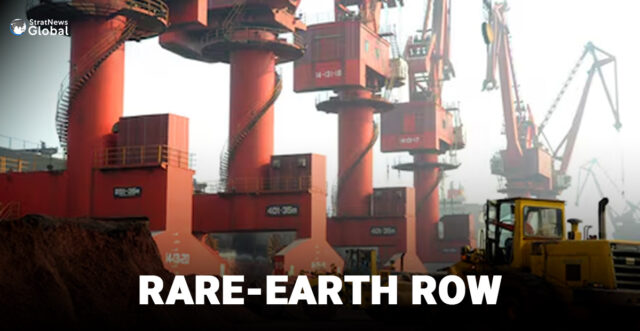China’s rare earths magnet producer JL MAG Rare-Earth said on Wednesday that it has secured export licences for products such as magnets, motor rotors, and components, allowing shipments to the U.S., Europe, and Southeast Asia.
The company applied for licences after China added several rare earth minerals and associated magnets to an export control list in April, and the applications are being approved “in succession”, the company said in a post on the official investor relations platform for the Shenzhen stock exchange.
The company did not say when the licences were approved. However, it announced the news shortly after U.S. and Chinese officials reached a deal in London that U.S. Secretary of Commerce Howard Lutnick said would “resolve” the rare earths restrictions.
JL MAG Rare-Earth’s shares were up 7.9% in late afternoon trading.
Fellow rare earths magnet producer Innuovo Technology said on Friday it had received a small number of export licences, without saying where the customers were based.
China has already offered to speed up approvals for some European companies as thousands of applications pile up for review in the small Ministry of Commerce department tasked with managing the export regime.
Beijing’s rare earths export curbs have upended supply chains central to automakers, aerospace manufacturers, semiconductor companies and military contractors around the world.
Rare-Earth Standoff
Tensions between the U.S. and China have escalated over the control and trade of rare earth minerals, vital components in high-tech industries including electronics, renewable energy, and defence.
The dispute intensified after the U.S. imposed tariffs on a range of Chinese goods as part of its broader strategy to counter what it calls unfair trade practices.
In response, China—a dominant global supplier of rare earth elements—tightened export restrictions on key rare earth materials, citing national security concerns.
Rare earth minerals are essential for producing items like electric vehicle motors, wind turbines, smartphones, and military-grade equipment.
The U.S., heavily reliant on Chinese rare earths, views Beijing’s export controls as a strategic move that could disrupt global supply chains and hinder its technological ambitions.
Washington responded by accelerating efforts to diversify its supply sources, investing in domestic mining projects and seeking partnerships with allies such as Australia and Canada.
Meanwhile, China argued its actions were lawful and necessary to protect its resources and technological edge.
(With inputs from Reuters)





